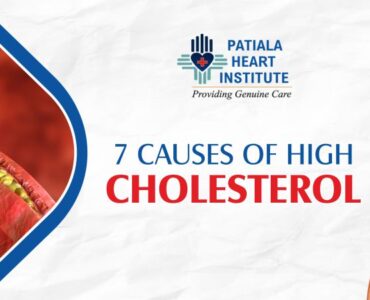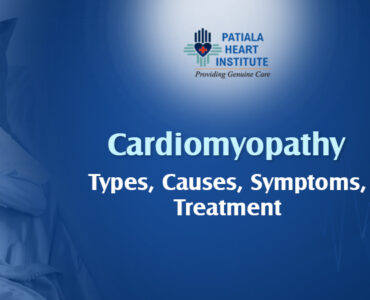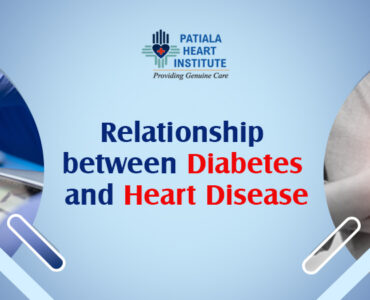One in four deaths in India are due to cardiovascular diseases, with heart disease and stroke responsible for 80 percent of this burden.
If you also are distressed about your heart health, you are right to be. Heart disease prevention should always stay at the forefront in everyone’s minds.
Our hearts are vulnerable to disease due to a sedentary lifestyle, stressful work life, poor diet, or lack of physical activities. Therefore, it is essential to make smarter and healthier lifestyle choices to reduce your risk of developing heart disease.
The key to making smarter and healthier lifestyle choices lies in the prevention of heart disease. Hence, we have come up with eight key heart disease prevention tips to help you get started:
Don’t smoke
You are never too late to quit smoking. It is one of the best things you can do for your heart.
How can smoking increase your risk of heart disease?
The nicotine chemical found in cigarettes can pose potential damage to your heart. This harmful chemical can increase your heart rate and blood pressure. In addition, these chemicals can further lead to the buildup of fatty plaque in the arteries.
Moreover, when you smoke, your blood vessels constrict, which can limit the blood flow to your heart. It can also damage your blood cells, which makes clots easier to form.
All these risk factors can occur due to smoking. Therefore, you should quit smoking to reduce your risk of heart disease. After quitting smoking for a year, your risk of heart disease can be cut in half.
Although quitting smoking is not easy, the benefits of quitting smoking are worth your efforts. You can take counseling sessions if you are finding it difficult to quit smoking. You can start doing physical exercises and medication to divert your mind from smoking.
Get movingDo you know regular and daily physical activities can lower your risk of heart disease?
Physical activities help you control your weight and reduce your chances of developing conditions like high blood pressure, high cholesterol, and diabetes. All of these conditions can put you at risk of heart disease.
How to keep yourself moving?
You can follow these tips to keep your heart moving
- Aim for at least 30 to 60 minutes of daily activities
- Aim for 10,000 steps daily for better heart health
- Start moderate aerobic exercises such as walking at a brisk pace.
Eat a heart-healthy diet
Irregular eating and poor lifestyle choices can lead to the development of heart disease. That is why people who don’t maintain a healthy diet and lifestyle are at high risk of heart disease. However, you can quickly mitigate the chances of heart disease by adopting a heart-healthy lifestyle and eating a heart-healthy diet.
For better heart health, you should fill your diet with fruits, vegetables, fiber, fish, and healthy fats. Moreover, you should also limit unhealthy fats such as trans fats and even salt.
There are certain foods that can help keep your heart healthy. These nutrient-rich foods help lower your blood pressure and can keep your cholesterol levels under control.
You should add these heart healthy foods to your diet:
- Nuts
- Berries
- Soy protein
- Avocado
- Oats
- Carrots
- Dark chocolates
Maintain a healthy weight
Obesity can aggravate your risk of heart disease. A BMI of 25 or higher is considered overweight and can lead to conditions of high blood pressure, high cholesterol, or diabetes. Diseases can put a strain on your heart and can aggravate the risk of heart disease.
Therefore, reducing and maintaining a healthy weight is one of the best things you can do for your heart. Reducing your weight by 3% to 5% can help decrease certain fats in your blood (triglycerides), lower your blood sugar (glucose), and reduce your risk of type 2 diabetes.
How can you maintain an ideal weight?
Being on the heavier side of the weight can put you under the risk of heart disease. Here are some of the changes that you can make to lose weight:
- Eat the right portion sizes
- Be more active
- Avoid foods containing fat
- Go for a walk
- Start cycling or swimming
Get quality sleep
Do you know that sleep deprivation can put you at risk of heart disease?
Sleep is important to restore and recharge the functioning of your body parts. Insufficient or fragmented sleep can lead to problems of blood pressure which can heighten the risk of heart disease.
Moreover, a sleep condition called obstructive sleep apnea can also put you at risk of heart disease. Therefore, you should try to improve your sleeping patterns. You need at least seven hours of sleep each night for better heart health.
To get the quality sleep, you can follow these steps:
- Stick to a regular sleep schedule
- Keep your bedroom clean and cool
- Switch off your phone while sleeping
- Try not to exercise before going to sleep
Keep stress under control
Juggling work, daily commitments can make you feel stressed or busy. However, taking too much stress is bad for your health. High levels of cortisol from long-term stress can raise blood cholesterol or blood sugar levels. Therefore, it is important for you to manage stress and improve your heart health.
Tips to keep your stress under control
- Start doing physical exercises
- Eat a well-balanced diet
- Take short breaks from your daily activities
- Make time for your hobbies
Get regular health screenings
Regular health screenings from a heart specialist is essential to keep your heart health in check. Health screenings can identify health issues before they become major problems.
Regular health screenings are important to keep your blood pressure and cholesterol level under check.
- Blood pressure: Blood pressure screening generally starts at the age of 18. It is ideal for you to get your blood pressure checked at regular intervals.
- Cholesterol level: Adults should get their cholesterol levels checked at least once every four to six years.
Take your medicines on time
When you have high blood pressure or high sugar levels, your doctor may prescribe certain medications. Take all these medications as directed by your heart specialist.
High blood pressure or high sugar levels can put a strain on your heart. Therefore, these medications help lower your blood pressure or blood sugar levels.
Patiala Heart Institute: Best Heart Specialist in Patiala
Patiala Heart Institute offers top-quality heart care to all patients. We have the best heart specialists in Patiala for treating all kinds of heart-related disorders.
What is a good heart rate?
A resting heart rate in an adult ranges from 60 to 100 beats per minute. Generally, a lower heart rate implies more efficient heart function and better cardiovascular fitness.
Can anxiety damage your heart?
Yes, anxiety can cause damage to your heart. Your cortisol levels and heartbeat may spike up when you take too much stress. It can aggravate your blood pressure and can weaken your heart muscles.







